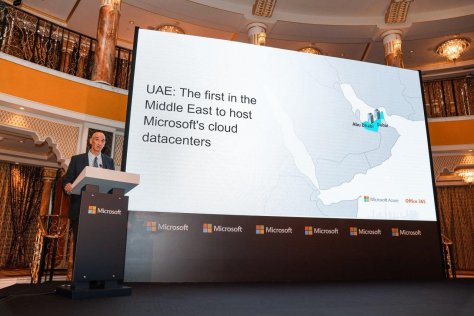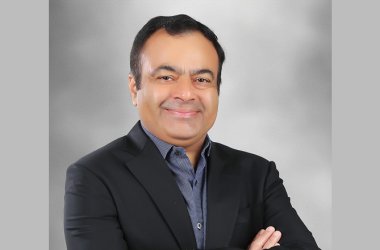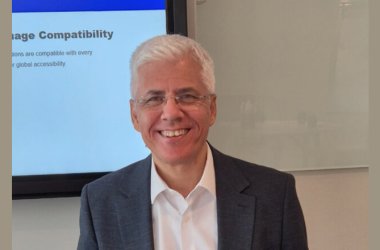Microsoft launched today two new cloud data centres in the United Arab Emirates. These new regions – Microsoft’s first in the Middle East – aim to empower customers and partners to embrace the benefits of the Fourth Industrial Revolution and achieve more.

The new cloud regions in Abu Dhabi and Dubai join Microsoft’s global cloud infrastructure – one of the largest and most secure in the world – to provide organizations, enterprises and developers in the UAE with access to scalable, highly available, and resilient cloud services while maintaining data residency, security and compliance needs. The new UAE locations will also deliver increased performance for Microsoft Cloud services to Middle East customers and partners.
“These new cloud regions in the UAE are the dawn of a new era, driving digital transformation, economic growth and job creation,” said Sayed Hashish, Regional General Manager, Microsoft Gulf. “We are committed to empowering every person and every organization on the planet to achieve more. Now, more customers in the Middle East can move with confidence to the trusted and intelligent Microsoft Cloud. They will be more competitive as they start their digital transformation journeys – engaging customers, empowering employees, optimising operations, and reinventing products and services.”
Microsoft Azure and Microsoft Office 365 are also generally available from the new cloud regions in the UAE. Azure, an ever-expanding set of cloud services, offers computing, networking, databases, analytics, artificial intelligence and Internet of Things (IoT) services to help organizations overcome their business challenges. Office 365 empowers customers to get more done on all devices, through cloud-based productivity solutions providing email, collaboration, conferencing, enterprise social networking and business intelligence. Dynamics 365 and Power Platform, offering the next generation of intelligent business applications and tools, are anticipated to be available from the cloud regions in the UAE by the end of 2019.
Paul Lorimer, Distinguised Engineer at Microsoft, explained that data residency in the UAE will help enable government organizations and enterprises to comply with in-country regulatory frameworks and decrease the obstacles for cloud adoption. This allows, for example, public sector departments to revitalize their service delivery with the ability to improve data gathering, promote teamwork, portal development and analytics.
Microsoft has been working closely with Abu Dhabi Digital Authority (ADDA) and Dubai Electronic Security Center (DESC) to enable compliant adoption of Cloud Services by the UAE government and semi-government entities. Microsoft is also the first cloud service provider in the UAE to achieve DESC’s Cloud Service Provider certification.
“To help meet the compliance needs of our customers, we have engaged very closely with the local authorities to ensure that our cloud services are compliant with relevant local standards and certifications, as well as the global and industry standards with which our services already comply. Microsoft would like to recognize the efforts made by the TRA, DESC and ADDA to ensure an enabling environment for data centers and cloud services in the country,” said Hashish.
Microsoft also anticipates the cloud services delivered from the UAE to have a positive impact on job creation, entrepreneurship and economic growth across the region. The International Data Corporation (IDC) predicts that cloud computing and the Microsoft ecosystem is set to bring more than half a million jobs to the Middle East, including Egypt, Saudi Arabia and the UAE between 2017 and 2022.
The global tech giant also expects the new cloud regions in the UAE to bring a massive opportunity for partners in the Gulf to grow their revenues and customer bases. They explained that more than 1,800 certified Microsoft partners from the region will play a pivotal role in supporting government and private organizations to embark on their cloud journeys.
“Microsoft Cloud services delivered from the UAE are another milestone in the transformative journey our partners and customers are taking,” concluded Hashish. “We are looking forward to continuing our journey with them, committed to the growth of the region and the future employability of our young people.”





